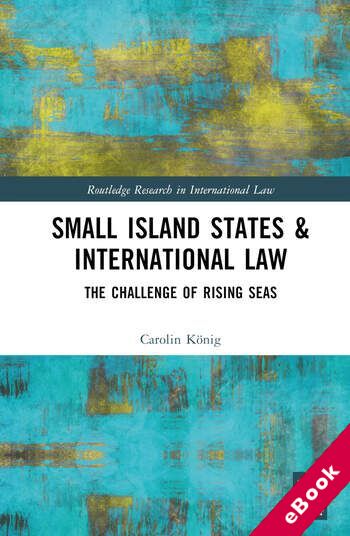
The device(s) you use to access the eBook content must be authorized with an Adobe ID before you download the product otherwise it will fail to register correctly.
For further information see https://www.wildy.com/ebook-formats
Once the order is confirmed an automated e-mail will be sent to you to allow you to download the eBook.
All eBooks are supplied firm sale and cannot be returned. If you believe there is a fault with your eBook then contact us on ebooks@wildy.com and we will help in resolving the issue. This does not affect your statutory rights.
What happens under international law if a state perishes due to rising sea levels without a successor state being created? Will the state cease to exist? What would this mean for its population? Have international law and globalization progressed enough to protect the people thus affected, or does international law still depend on the territorial state when it comes to protecting entire populations?
Exploring these issues, this book provides answers to these pressing questions. Focusing on small island states as actors in the international community, it evaluates the challenges that the state as a subject of international law faces in general from globalization and humanization, and what this means for small island states threatened by rising seas. Highlighting the experience of the indigenous peoples of small island states as collectives, and to the individuals living in these states, the book addresses fundamental questions of general state theory and international law, drawing on an extensive body of source material.
As rising sea levels present an increasingly pressing threat to small island states, this book highlights the importance of international protection of the individual and the capacity of international organizations to act within existing international law. It identifies pressing problems where immediate action is required and argues that, in future, the responsibility for protecting individuals could shift to the international community, if a sinking island state can no longer protect its population on its own.